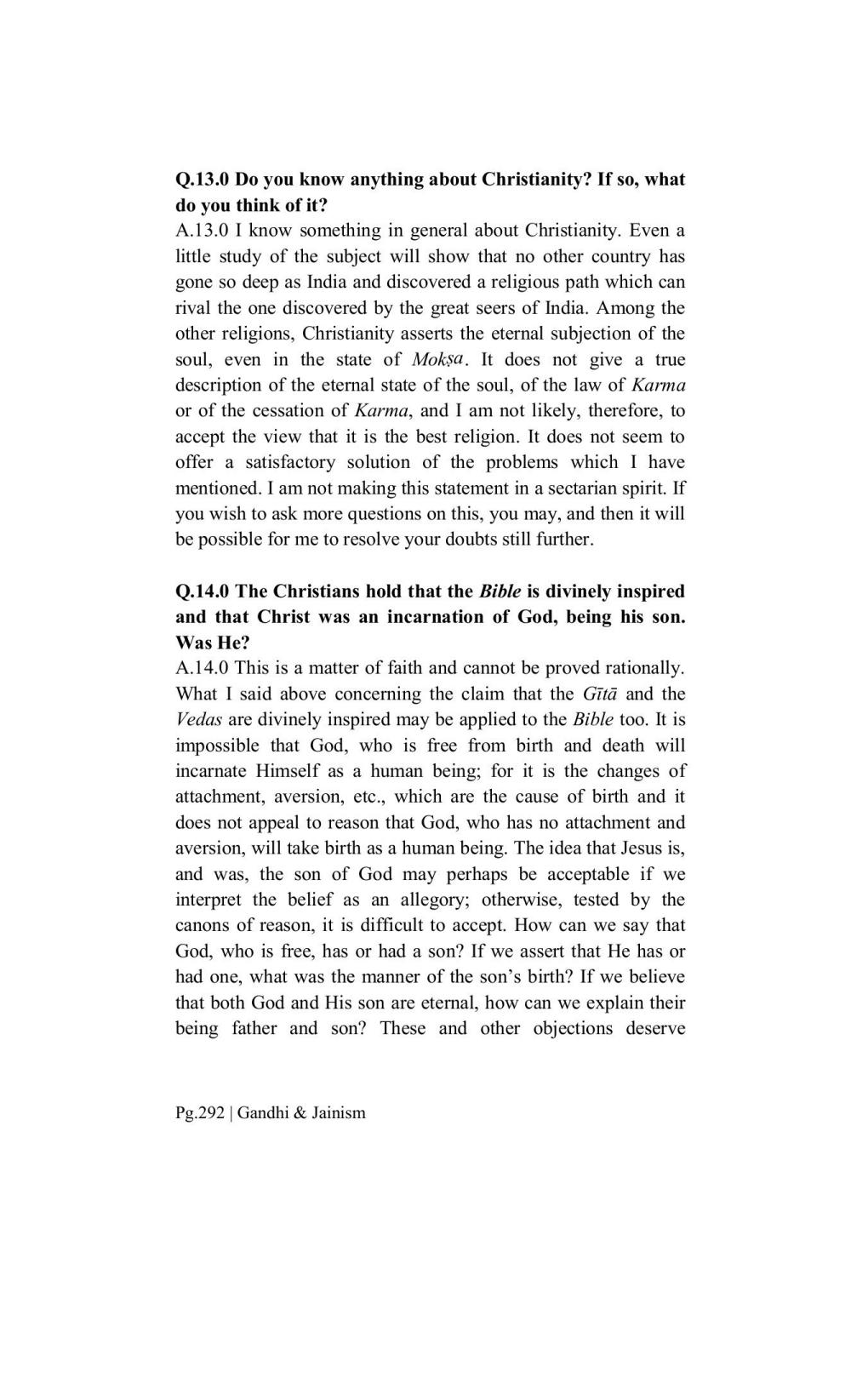________________
Q.13.0 Do you know anything about Christianity? If so, what do you think of it? A.13.0 I know something in general about Christianity. Even a little study of the subject will show that no other country has gone so deep as India and discovered a religious path which can rival the one discovered by the great seers of India. Among the other religions, Christianity asserts the eternal subjection of the soul, even in the state of Mokşa. It does not give a true description of the eternal state of the soul, of the law of Karma or of the cessation of Karma, and I am not likely, therefore, to accept the view that it is the best religion. It does not seem to offer a satisfactory solution of the problems which I have mentioned. I am not making this statement in a sectarian spirit. If you wish to ask more questions on this, you may, and then it will be possible for me to resolve your doubts still further.
Q.14.0 The Christians hold that the Bible is divinely inspired and that Christ was an incarnation of God, being his son. Was He? A.14.0 This is a matter of faith and cannot be proved rationally. What I said above concerning the claim that the Gītā and the Vedas are divinely inspired may be applied to the Bible too. It is impossible that God, who is free from birth and death will incarnate Himself as a human being; for it is the changes of attachment, aversion, etc., which are the cause of birth and it does not appeal to reason that God, who has no attachment and aversion, will take birth as a human being. The idea that Jesus is, and was, the son of God may perhaps be acceptable if we interpret the belief as an allegory; otherwise, tested by the canons of reason, it is difficult to accept. How can we say that God, who is free, has or had a son? If we assert that He has or had one, what was the manner of the son's birth? If we believe that both God and His son are eternal, how can we explain their being father and son? These and other objections deserve
Pg.292 Gandhi & Jainism




